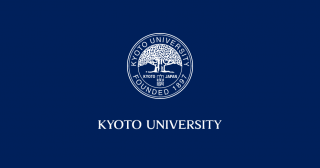On 19 January, the Graduate School of Advanced Integrated Studies in Human Survivability (GSAIS, or "Shishu-Kan") signed a memorandum of understanding on an academic partnership with the Centre for the Study of Existential Risk (CSER), an interdisciplinary research center at the University of Cambridge.
CSER was founded in 2012 by Astronomer Royal Martin Rees, Dr Huw Price, Bertrand Russell Professor of Philosophy at Cambridge, and Mr Jaan Tallinn, co-founder of Skype, as a unique research institute dedicated to the study of risks threatening the future of humanity. Its main collaborators at Kyoto to date have included Director of the Kwasan and Hida Observatories Professor Kazunari Shibata, and GSAIS Associate Professor Hiroaki Isobe.
In November 2016, Shishu-Kan invited two CSER representatives to its annual international symposium, focused on the risks posed by extreme natural disasters. CSER held its first symposium at Cambridge in the following month, with a presentation by Professor Isobe on the emerging risks of extreme solar storms.
In October 2017, Professor Rees, together with CSER Research Associate Julius Weitzdörfer, met in Kyoto with Professors Shibata, Isobe, and Yosuke Alexandre Yamashiki, another Shishu-Kan researcher. This meeting resulted in an agreement on CSER-GSAIS collaboration in (1) joint-research funding applications, (2) regular collaborative research workshops, and (3) faculty exchange.
Based on this agreement, Professor Yamashiki visited CSER in January 2018 to sign the partnership MoU, under which the two institutions will collaborate on projects such as studies of extreme solar storms and joint workshops on existential risks.

CSER and GSAIS representatives at the STS forum's October 2017 meeting

CSER's academic project manager Dr Catherine Rhodes (left) and Dr Weitzdörfer, in Cambridge talking via Skype with Professor Isobe and others in Kyoto

From left: Dr Weitzdörfer, Professor Yamashiki, and Astronomer Royal Rees





